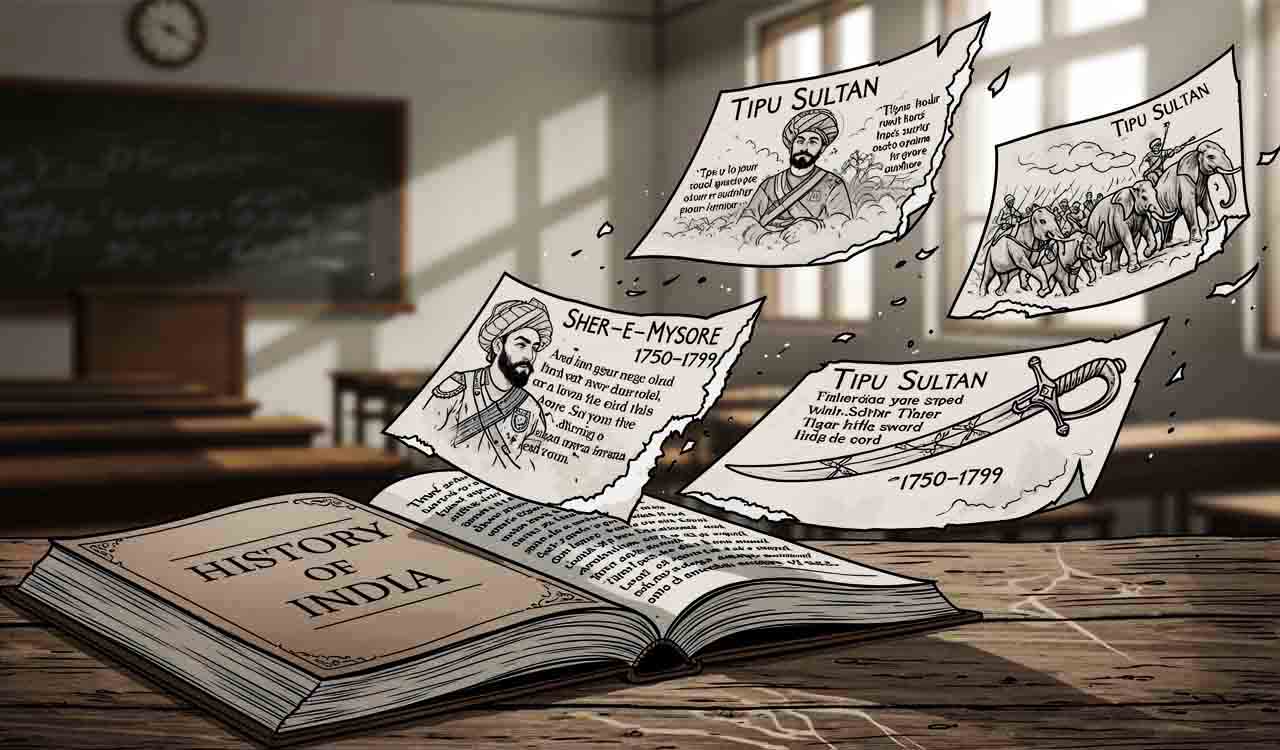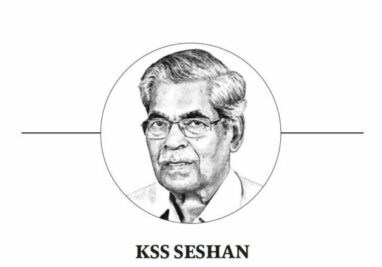Opinion: Deleting Tipu Sultan distorts history
NCERT must rise above political and religious biases in crafting textbooks, especially in history

By KSS Seshan
The National Council of Educational Research and Training (NCERT), in a blatant move, has omitted an entire lesson on the role of Hyder Ali and his son and successor Tipu Sultan of Mysore, along with the Mysore Wars they fought against the British in the late 18th century, while revising the Class VIII Social Science textbook under the guise of textbook rationalisation.
Also Read
The NCERT is a responsible national body that oversees the framing of syllabi, preparation of course materials, authorship of textbooks, conducting of final exams and even the publication of results. It is also the responsibility of the NCERT to ensure that the school textbooks it publishes offer comprehensive information on basic foundational knowledge to schoolchildren in every subject without prejudice. This is more so with regard to the Social Sciences, particularly History.
Defying Logic
Of all the subjects schoolchildren study, History plays a significant and complex role, as diverse socio-economic, cultural and religious factors come into play in its narrative through historical times. History provides a ‘Longue durée’ perspective, unlike other subjects that offer a snapshot view. Hence, the influence of ideological preferences in explaining and interpreting events, movements and even personalities may affect the objective presentation of historical facts.
The NCERT’s decision to delete the entire chapter on the Anglo-Mysore Wars and the role played by the father-son duo, Hyder and Tipu, in the textbook, defies logic. It is an open onslaught on the scientific spirit with which history must be presented to the young minds. It also amounts to a denial of significant information regarding the valiant resistance that Mysore and its two rulers put up against the British colonial masters during the late 18th century.
Anglo-Mysore Wars
Mysore under Hyder Ali was the first native state to resist the growing British power in India. After the victory at Plassey in Bengal in 1757, the British went on a spree of occupation of territorial expansion. But Hyder Ali gave a tough fight right from the beginning of the first Mysore War in 1767. He attacked the British garrisons and carried the war almost to the gates of Madras. Hyder Ali was a great diplomat and seasoned fighter. Even the British acknowledged it. After his death in 1782, when the second Mysore War was still on, his able son Tipu continued the resistance.
The story of Mysore’s resistance to the British, especially under Tipu Sultan, is a bright chapter in the anti-colonial struggle and served as the foundation for the rise of anti-British sentiment
Tipu fought two more wars against the British single-handedly. Other Indian principalities — such as Hyderabad, the Peshwa, the Marathas and Arcot — supported the British with men, money and materials. Undeterred by the lack of support from other princes, Mysore under the indomitable Tipu stood steadfast. Though he ultimately lost in the fourth and final Anglo-Mysore War in 1799, his legacy remains one of heroic resistance to keep the British away from the motherland.
The Anglo-Mysore Wars thus form the basis for the genesis and growth of anti-British sentiment and for the countrywide Indian national movement. To deny schoolchildren any knowledge about the Mysore Wars, which laid the foundation for our future struggle against British colonialism, is absurd to say the least.
Selective Omission
Some omissions in school textbooks are necessary due to certain constraints. For example, for an eighth-grade student, while dealing with the Indus Valley Civilisation, the numerous descriptions of the dress people of that period wore, the food they ate, the rituals they practised etc, may be redundant. But in the name of brevity and rationalisation, if the entire chapter is deleted, then it leads to multiple disadvantages.
This also creates a major gap in the continuity of the narrative. The void it creates will cause confusion not only among students but also among teachers, as an important link gets snapped. As history is a continuous process, the abrupt removal of any significant aspect of the past can lead the reader/learner into confusion. Structurally, there is no logic in constructing a historical narrative through the selective omission of events that have a bearing on the future course of history.
The story of Mysore’s resistance to the British, especially under Tipu Sultan, is a bright chapter in the anti-colonial struggle. Following Tipu’s death in 1799, Mysore was dismembered, divided among the victors, and pillaged. Tipu’s family was humiliated and exiled. These events served as the bedrock for the rise of intense anti-British and anti-colonial sentiment among people across the country.
It is impossible to explain the rise of nationalist feelings without a mention of the heroic fight that was carried out by the Tiger of Mysore, Tipu Sultan. An understanding of the nature of our national movement will never be full, complete and comprehensive without the knowledge of such struggles. History certainly will be poorer if such significant and bright spots are omitted in the school textbooks.
The NCERT must rise above political and religious biases in crafting textbooks, especially in History. It must ensure that a scientific and secular approach is maintained. Otherwise, it will not only damage NCERT’s image but will also hinder the true learning of the millions of children for whom the textbooks are written.

(The writer is retired Professor of History at the University of Hyderabad)
Related News
-
KCR extends Ramzan greetings on Ramzan commencement
3 mins ago -
Traffic diversions announced for Chatrapathi Shivaji Jayanthi procession in Hyderabad
3 mins ago -
Harish Rao questions Delhi review on Telangana government’s performance
9 mins ago -
ABVP protests at TG BIE over delay in issuing hall tickets
16 mins ago -
BRS workers booked under SC/ST Act after stand-off with Mynampally Rohit
24 mins ago -
Toddy tapper electrocuted in Sangareddy
30 mins ago -
Invincible US Infrastructure Eyes Rs 100-Crore Fundraise; Bets Big on Solar-Powered Data Centres
39 mins ago -
SCB approves garbage transport tender and official records digitization
39 mins ago




